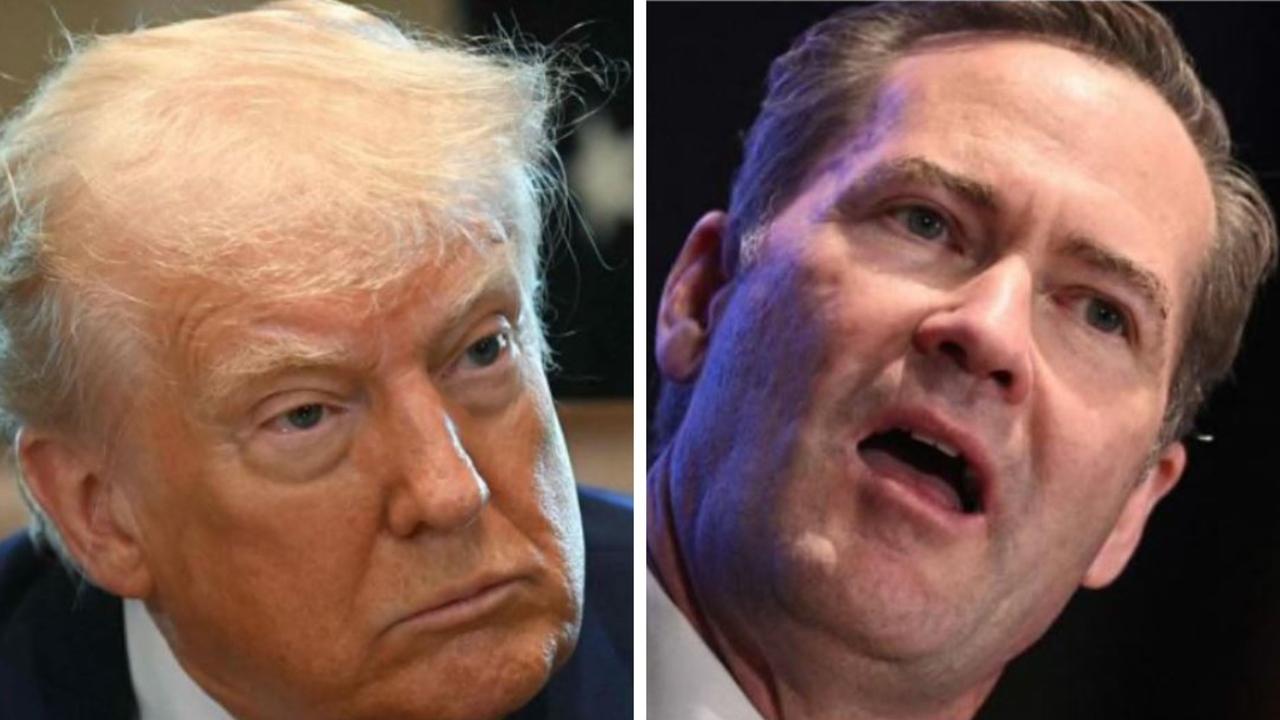Democrats can’t hold a candle to Trump in fight on anti-Semitism
Why Donald Trump’s protection leaves Jews confused. He vigorously opposes anti-Semitism yet gets accused of it himself.

Anti-Semitism is on the rise in the US, but the response from America’s Jews has been confused.
Donald Trump is the first president to confront anti-Semitism by recognising Jerusalem as Israel’s capital and by extending civil-rights protection to Jewish college students in the US. Yet some Jews and Jewish organisations condemn him as an anti-Semite and denounce his initiatives.
One reason, perversely, is the success of Holocaust teaching. Americans raised on this history are so used to Nazi villainy that they cannot imagine any other form of anti-Jewish politics. Neo-Nazism, as in Charlottesville or Pittsburgh, raises the alarm. Attacks on Israel do not.
Yet anti-Semitism has become anti-Zionism. After World War II, Zionism was one of many national movements that established new countries or shucked off colonial oversight. As Israel integrated Jews from all parts of the world, including almost a million fleeing Arab countries, anti-Jewish politics adapted. Once directed against Jews as aliens in other people’s lands, it was thereafter aimed at Jews in their own land.
Two brands of anti-Zionism arose in tandem with Nazism and took over where it left off.
The Soviet Union, which outlawed religion and tried to assimilate all its nationalities, took special aim at Zionism, finding in the independent, unassimilable Jews one of the greatest obstacles to its power. The communist party hailed the Muslim Brotherhood’s 1929 attacks on the Jews of Palestine as the start of an Arab Revolution. Moscow did support the creation of Israel in 1947, but quickly reverted to form.
Even more consequentially, the Arab-Muslim brand of anti-Zionism became the cornerstone of pan-Arab and Islamist politics. The Arab League formed in 1945 to oppose the presence of a Jewish state. Arab leaders rejected the UN partition of Palestine not only to prevent the emergence of Israel but to keep this Arab population permanently “homeless” as perpetual justification for destroying Israel.
Although Egypt and Jordan made peace with Israel, anti-Jewish politics remains the strongest unifier of an otherwise fractured Arab and Muslim Middle East.
The alignment between these two brands of anti-Jewish politics works through their common target rather than common principles. Soviet and Arab blocs engineered the infamous 1975 UN resolution that defined Zionism as racism and forged a political axis that outlasted the Soviet Union itself.
In the 1970s, this anti-Jewish alliance, fuelled by Arab funding, disseminated through Arabist and Islamist professors, and encouraged by the far left, expanded its influence in American education and media. It currently underwrites “intersectionality”, the self-defined coalition of identity grievance groups, who find a unifying target of blame in Israel and its Jewish supporters.
Opposition to Israel is an article of faith in most of the Middle East, and some immigrants from that part of the world think it their right and duty to promote that part of their heritage.
With Trump’s declared commitment to “combating the rise of anti-Semitism and anti-Semitic incidents in the United States and around the world”, his administration has set itself squarely against the threat. Liberals who also want to combat anti-Semitism might understandably have wished for a different champion. But the Democratic Party’s descent into anti-Zionism leaves no choice but to support this aspect of the administration’s policy and to confront politicians on the left for adopting the politics of grievance instead.
Confusion becomes mendacity when Trump’s accusers try to deflect attention from the real sources of Jew-baiting by calling the President an anti-Semite — using his defects to conceal the real and present danger from their side of the aisle. On this issue, the President is on the right side, not because he sides with the Jews but because the worst forces in history align against the Jews. Fighting them is the only way America can remain American.
Ruth R. Wisse, a senior fellow at the Tikvah Fund, is the author of Jews and Power



To join the conversation, please log in. Don't have an account? Register
Join the conversation, you are commenting as Logout